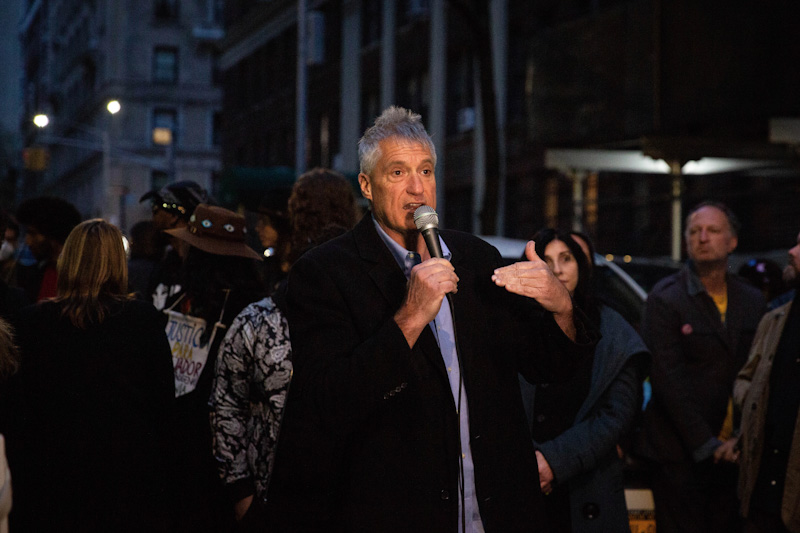Prosecution of environmental lawyer Steven Donziger broke 'basic constitutional promise,' 2 SCOTUS justices say

Supporters, family and friends of Steven Donziger (center) gathered in New York in April 2022 to celebrate his release after six months in jail. Photo by Karla Ann Cote/NurPhoto via the Associated Press.
Two conservative justices are raising concerns about judge-appointed prosecutors in a dissent from the U.S. Supreme Court’s refusal to hear the case of disbarred environmental lawyer Steven Donziger.
Justice Neil Gorsuch wrote the March 27 dissent, joined by Justice Brett Kavanaugh. The dissent criticized the appointment of a court-appointed prosecutor to pursue a criminal contempt case against Donziger for refusing to turn over electronic devices and disobeying other court orders in a lawsuit by the Chevron Corp.
The Chevron Corp. had contended that Donziger used fraud to obtain an $8.6 billion pollution judgment in Ecuador against Texaco, a corporate predecessor company to Chevron. He was convicted of contempt in a bench trial in October 2021.
“However much the district court may have thought Mr. Donziger warranted punishment,” Gorsuch wrote, “the prosecution in this case broke a basic constitutional promise essential to our liberty. In this country, judges have no more power to initiate a prosecution of those who come before them than prosecutors have to sit in judgment of those they charge.”
U.S. District Judge Lewis Kaplan of the Southern District of New York had appointed the special prosecutor after the U.S. attorney’s office declined to take up his referral for prosecution. U.S. District Judge Loretta A. Preska of the Southern District of New York found Donziger guilty in a bench trial. He was sentenced to six months in jail.
The 2nd U.S. Circuit Court of Appeals at New York upheld the conviction in June 2022.
Donziger had argued that the federal court did not have the authority to override the executive branch’s nonprosecution decision.
Gorsuch and Kavanaugh agreed. Donziger’s special-prosecutor arrangement “allowed the district court to assume the ‘dual position as accuser and decisionmaker’—a combination that ‘violat[es the] due process’ rights of the accused,” Gorusch said, quoting from another decision.
The lawyer for Chevron—Theodore J. Boutrous Jr. of Gibson, Dunn & Crutcher—gave this statement to the ABA Journal: “Mr. Donziger’s petition had no bearing on Chevron’s federal racketeering judgment against him, in which a unanimous 2nd Circuit panel found that Donziger engaged in a ‘parade of corrupt actions … including coercion, fraud and bribery.’”
Updated March 27 at 3:20 p.m. to include the statement by Theodore J. Boutrous Jr.



